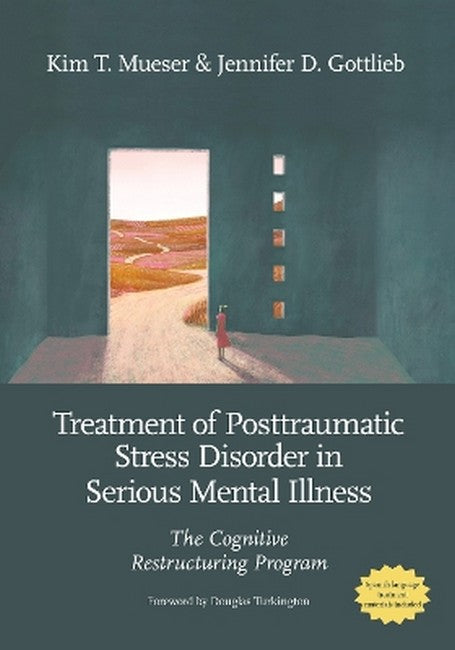Kim T. Mueser, PhD, is a professor in the Departments of Occupational Therapy and Psychological and Brain Sciences at Boston University. He has published over 400 peer-reviewed articles, 100 book chapters, and 15 books primarily on psychosocial treatments for serious mental illness (SMI), and has given numerous conference presentations, workshops, and invited lectures in the U.S. and abroad. Dr. Mueser began adapting empirically supported treatment methods for PTSD in the general population to the SMI population in the late 1990s, which resulted in the first standardization and feasibility testing of the CR for PTSD program in the early 2000s, followed by randomized controlled trials evaluating the program. Jennifer D. Gottlieb, PhD is a diplomate in the Academy of Cognitive and Behavioral Therapies whose work has been dedicated to the development, evaluation, and implementation of effective psychotherapeutic interventions for persons with severe psychiatric conditions. She is a founding member and former president of the North America CBT for Psychosis Network (NACBTp) and is on the faculty at Cambridge Health Alliance and Harvard Medical School. In addition to numerous publications and presentations related to cognitive-behavioral therapies for psychosis and other serious mental illness, Dr. Gottlieb has focused on the Cognitive Restructuring for PTSD intervention for over 18 years, both as a co-investigator and program development consultant. She has provided extensive workshop training, clinical supervision, and treatment fidelity evaluation to hundreds of clinicians and has worked with multiple mental health agencies, nationally and internationally, to implement and sustain this intervention. To learn more, please visit her website: www.jennifergottliebphd.com.
Request Academic Copy
Please copy the ISBN for submitting review copy form
Description
Foreword Preface Part I: Background, and Overview of Trauma and PTSD in Serious Mental Illness Chapter 1. Trauma and PTSD in Serious Mental Illness Chapter 2. Treatment of PTSD in People with Serious Mental Illness: The Cognitive Restructuring Program Chapter 3. Understanding and Assessing Trauma and PTSD Part II: The Cognitive Restructuring for PTSD Program Chapter 4. Logistics of Implementing the CR for PTSD Program Chapter 5. Beginning Treatment, Engagement, Orientation, Wellness Planning, and Breathing Retraining Chapter 6. Psychoeducation and Goal-Setting Chapter 7. Cognitive Restructuring I: The Thought-Feeling Model and Common Styles of Thinking Chapter 8. Cognitive Restructuring II: The 5 Steps of Cognitive Restructuring and Action Plans Chapter 9. Cognitive Restructuring III: Working with Trauma-Related Thoughts, Core Beliefs, and Persistent PTSD Symptoms Chapter 10. Solutions to Common Challenges Chapter 11. Skill Generalization and Termination Part III: Special Clinical Challenges and Populations Chapter 12. Working with People with Psychosis Chapter 13. Working with People with Borderline Personality Disorder Part IV: Conclusions Chapter 14: The Role of the CR for PTSD Program in a Comprehensive System of Mental Health Care References Appendix: Tools, Handouts, and Worksheets

